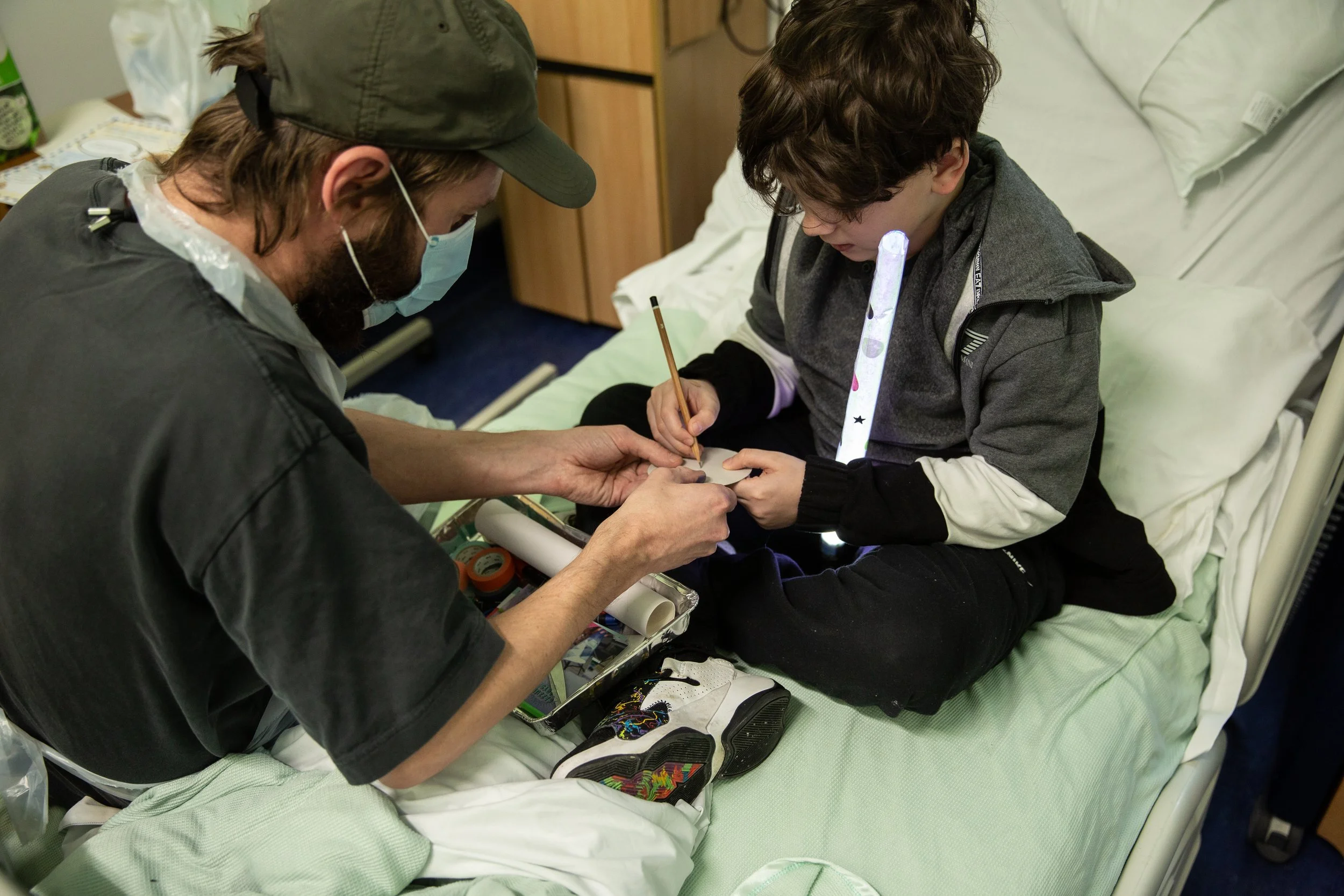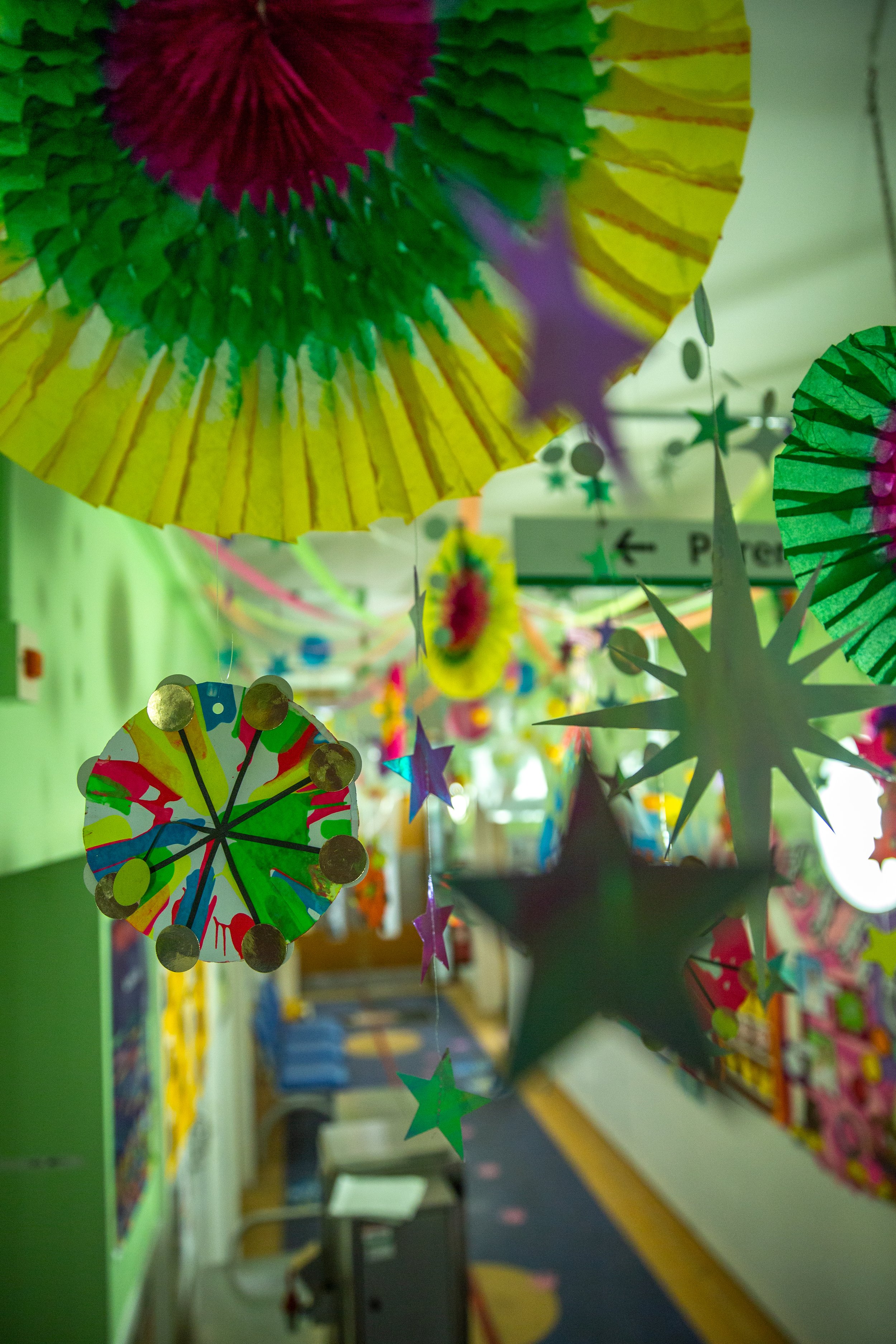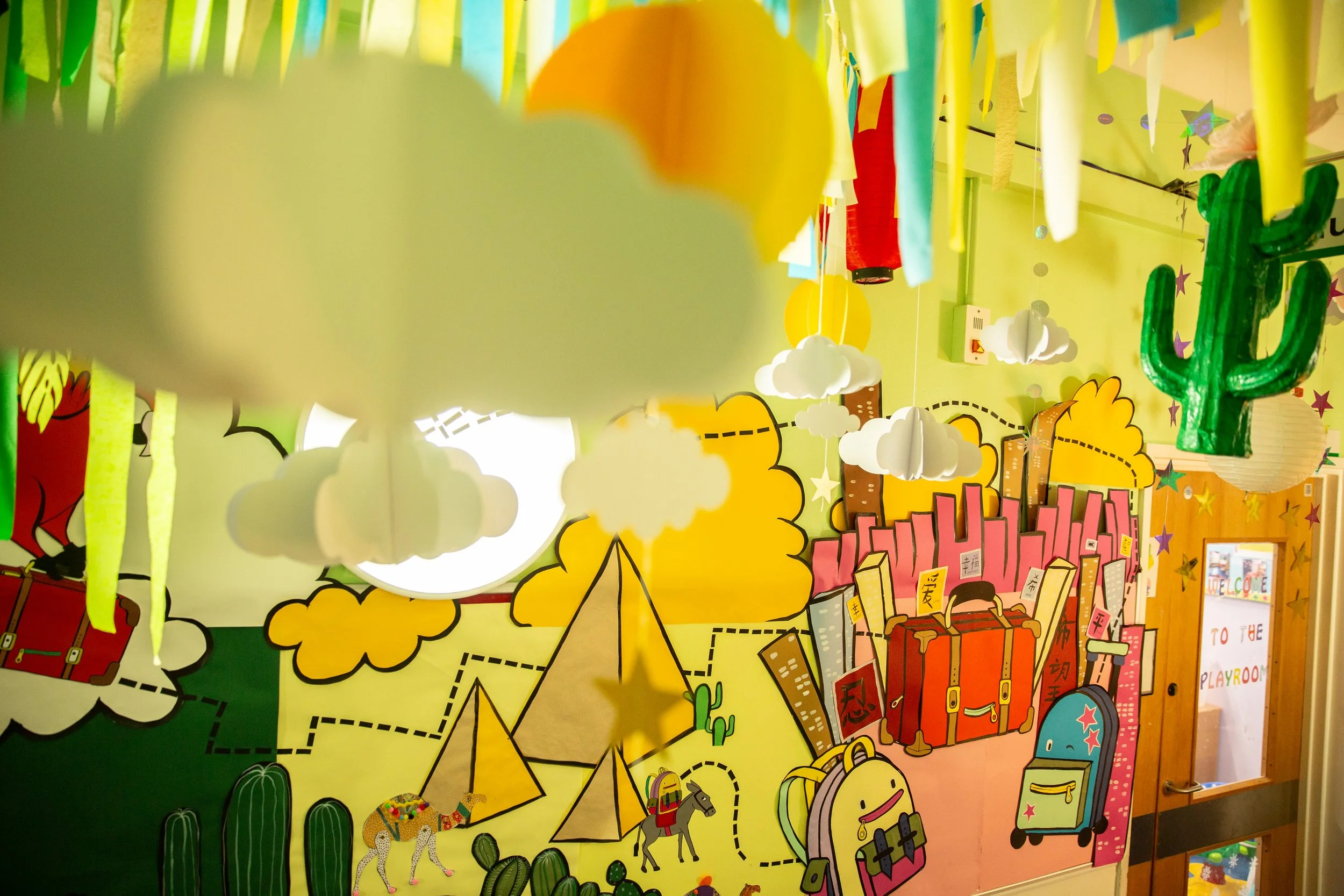Kazzum on the Ward - Apollo in 2023
A hospital stay for a child or young person can be an overwhelming and stressful experience. Regardless of whether the stay is brief or longer-term, a regular occurrence or a one-off, the distress caused can be substantial.
In a 2016 study it was noted that ‘children commonly report feeling afraid or anxious as they anticipate and engage in healthcare settings with medical professionals,’. Whilst this experience may be quite common, it can be mitigated and minimised with the right conditions; some are built into the hospital environment already, but there are more holistic methods of care that can also have significant effect.
There is a mounting body of research that evidences the benefits of arts activities for patients undergoing treatment in hospitals. These activities might include anything from music, to storytelling, to colouring and crafting, all of which contribute to a positive effect on wellbeing. A recent WHO report recorded that ‘the provision of arts activities, live music and theatre performances by patients’ bedsides has been found to reduce anxiety and pain and improve mood and compliance with medical procedures,’ which demonstrates why work such as our Apollo Project is so necessary.
“I wish you were here all of time! Today has really helped with my pain.”
Our Apollo Project is one of our longest-standing programmes of activity. This year it ran as a series of workshops delivered on the Acorn Children’s Ward at Whipps Cross Hospital, providing consistent contact for the patients through weekly sessions. At certain points in the year those weekly sessions became a week-long intensive programme of activity where our artists were on the ward every day and built an immersive exhibition in the ward corridor, incorporating many pieces of art made by the young people. Previous years have included residencies but no weekly sessions, and the impact of more regular and consistent contact with young people on the ward throughout the year has been positive.
This year we had two residencies, in the lead up to Christmas and again in the Spring, and it was incredible to work with the creative young people who showed such resilience and artistry throughout both weeks.
“I enjoyed creating the origami lights because I learnt something new and I’ve always liked art and design and this really helped me.”
The theme for the winter residency was ‘Festive Fairground’, and the Acorn Ward corridor was transformed into a bright and colourful funfair, including sparkling stars dangling from the ceiling and trapeze animals swooping down the hallway. In the Spring the ‘World of Wonder’ was put together, showcasing deserts and jungles, leafy canopies and even a few parrots dotted about for close observers.
“Kazzum are vital to our ward, the opportunity that they allow for children and young people is very hard for us to replicate, and the attention that they give to our patients is very well received.”
Both immersive spaces could not have been created without the imagination of the participants, who spent time with our Associate Artists Jon and Tash in the playroom or worked on creative projects with them at bedside. Jon and Tash worked on delivering over 25 different creative activities to the participants in that time, including copper-embossing, marbling, tie-dying, puppet-making and more! During the winter residency our artists were even able to give some time over to a workshop for the NHS staff during the lunch hour, to allow them an opportunity for mental wellbeing through creative practice too. Now that the residencies and weekly visits have slowed down for summer, we will be distributing activity books for young people on the ward to ensure that opportunities for creativity are still accessible.
“I was happy to be here and learn new things. I feel very energised and happy. Thank you!”
An APPG report on the Arts and Health for Wellbeing reminds its readers that ‘the creative impulse is fundamental to the experience of being human’ and therefore ‘the act of creation, and our appreciation of it, provides an individual experience that can have positive effects on our physical and mental health and wellbeing.’ Taking this on board, the trauma-informed approach that we take in our Apollo project enfolds different aspects of health and wellbeing into a collaborative and participant-led programme that ultimately aims for wellbeing and personal growth beyond the participant’s time in hospital. In the future we can only hope to continue to bring creative opportunities to young people on hospital wards and push for better recognition of the untold benefits to wellbeing that this kind of provision can have.




